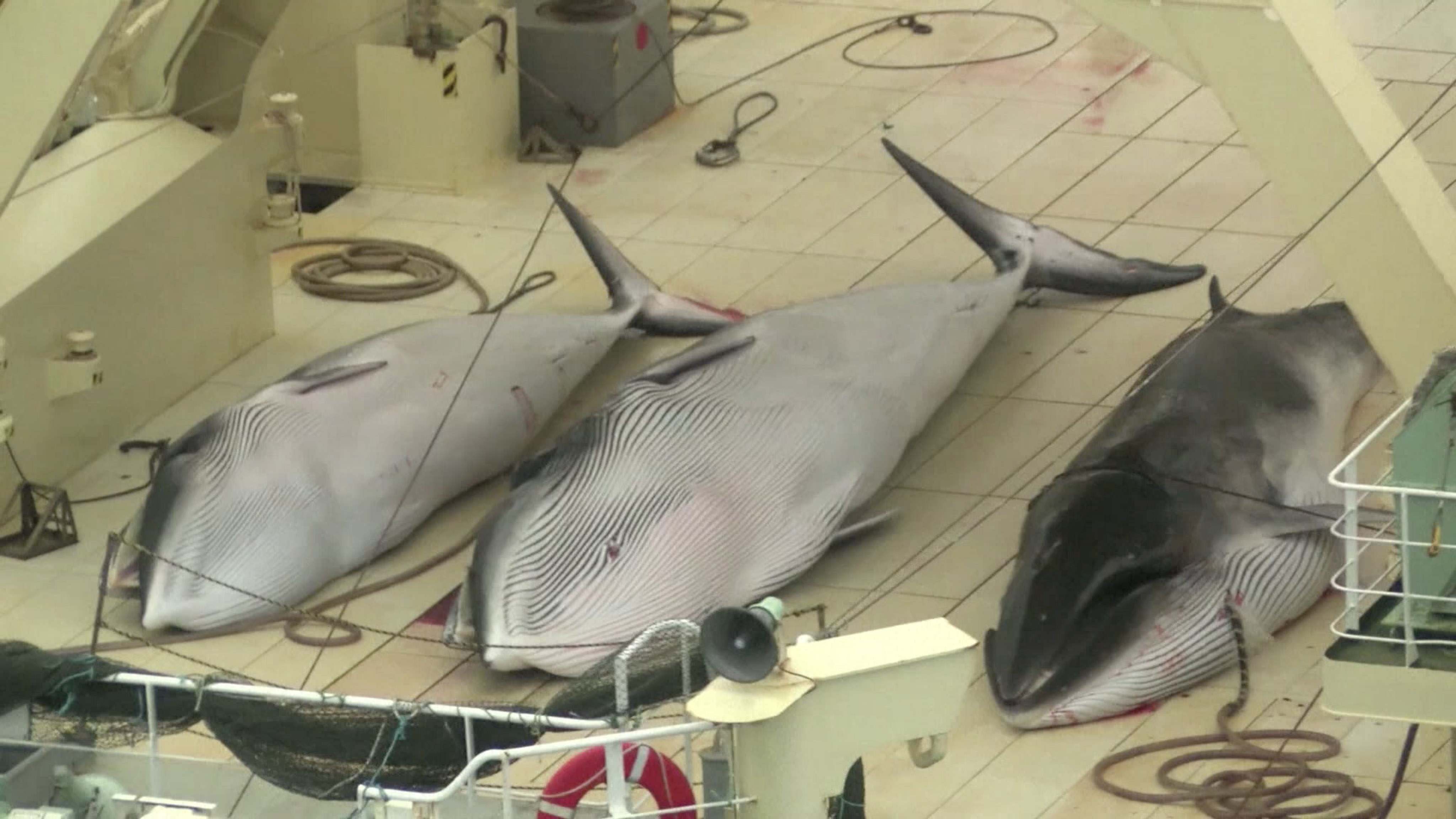
Tech & Sci
11:26, 31-May-2018
Japan kills 122 pregnant whales for 'scientific research'
By Alok Gupta
01:22

Over 300 Antarctic minke whales were slaughtered – including 122 that were pregnant – during an annual research expedition in Japan last summer, revealed a recent report.
Japanese hunters also killed 114 immature minke whales during the third New Scientific Whale Research Program in the Antarctic Ocean (NEWREP-A). The report was submitted in early May at the International Whaling Commission (IWC) Scientific Committee during a meeting in Slovenia.
Japanese researchers claim the hunt was aimed at procuring a gamut of data including the stomach contents and nutritional condition of whales.
"Lethal sampling methods" were used to acquire the data, with researchers justifying the deaths by pointing out that the aquatic animal's age can only be ascertained by analyzing earwax plugs that build up over the years.
Of the whales that were killed, the report maintains that the "apparent pregnancy rate of sampled animals was high (95.3 percent), and no lactating animal was observed in this survey.”

Japanese whaling vessel the Nisshin Maru returns to the Shimonoseki port in southwestern Japan on March 31, 2017, after it and two other vessels hunted 333 minke whales in the Antarctic Ocean. /VCG photo
Japanese whaling vessel the Nisshin Maru returns to the Shimonoseki port in southwestern Japan on March 31, 2017, after it and two other vessels hunted 333 minke whales in the Antarctic Ocean. /VCG photo
Humane Society International (HSI) expressed outrage over the killing of 122 pregnant females. “It is a further demonstration, if needed, of the truly gruesome and unnecessary nature of whaling operations, especially when non-lethal surveys have been shown to be sufficient for scientific needs,” said Alexia Wellbelove, senior program manager at HSI.
“The killing of 122 pregnant whales is a shocking statistic and sad indictment on the cruelty of Japan’s whale hunt,” she added.
The International Court of Justice (ICJ) ruled in 2014 that Japan’s Antarctic research whaling program was illegal. The court directed an immediate end to the mass slaughter, but Tokyo decided to walk out of ICJ as an arbiter of whaling disputes. Japanese researchers continued their Southern Ocean whale hunt in 2015.
“Whales are already facing substantial threats including bycatch in fisheries and marine pollution. Significant conservation efforts are underway worldwide to address these issues, so the least Japan could do is put away the harpoons,” Wellbelove said.
Japanese government provides significant subsidies to the whaling industry and research programs. Whale meat has traditionally been a staple diet in the country, though some people have switched over to other sources of food.
The next meeting of the International Whaling Commission is in September in Brazil.

SITEMAP
Copyright © 2018 CGTN. Beijing ICP prepared NO.16065310-3
Copyright © 2018 CGTN. Beijing ICP prepared NO.16065310-3